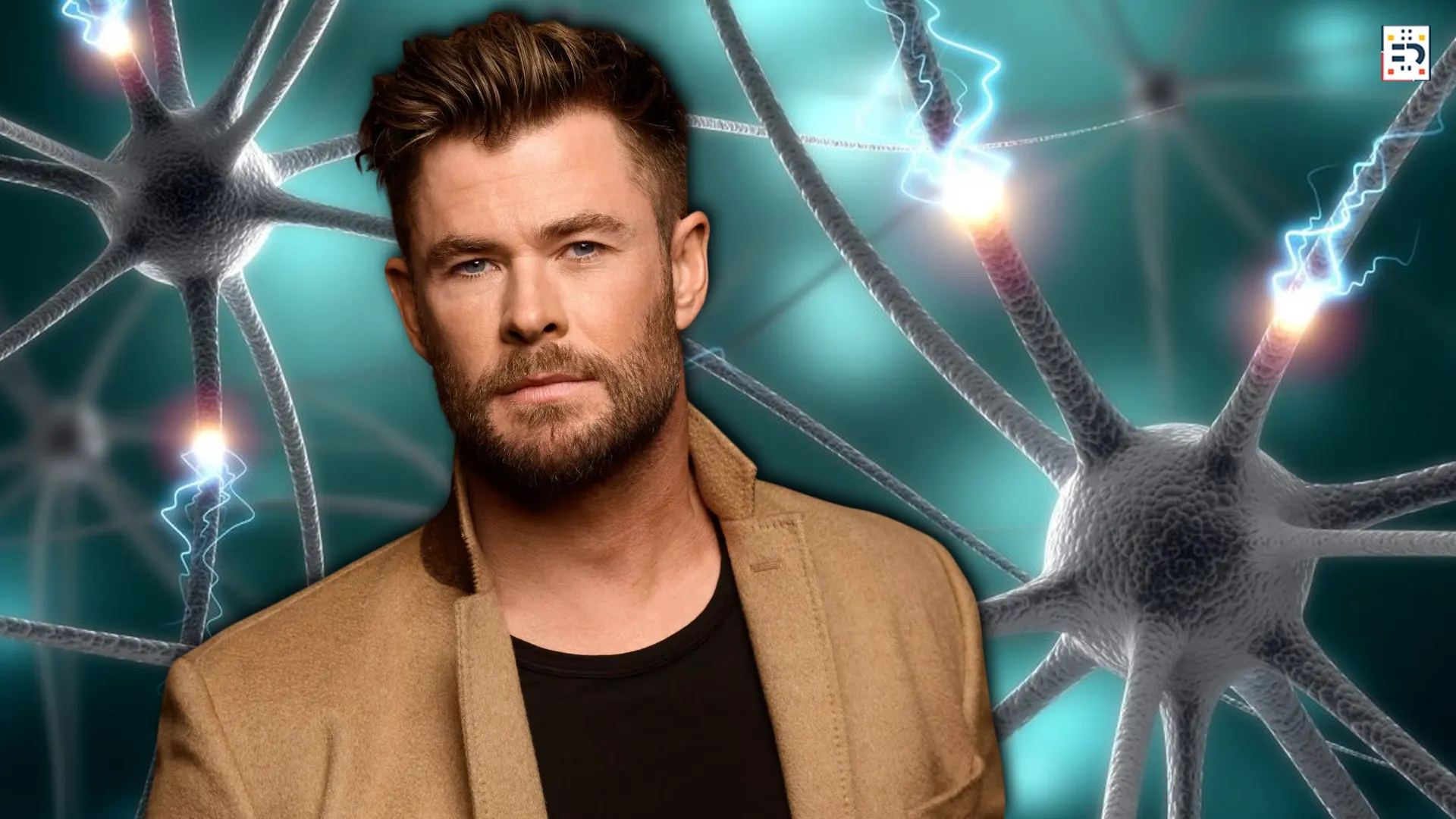Introduction: Chris Hemsworth Alzheimer’s Revelation Sparks National Awareness
Alzheimer’s disease affects over 7 million Americans in 2025, making it one of the most pressing health challenges facing families nationwide according to the Alzheimer’s Association. When Marvel superstar Chris Hemsworth revealed his elevated Alzheimer’s genetic risk through APOE4 gene testing, it brought unprecedented attention to early detection, genetic screening, and Alzheimer’s prevention strategies.
This comprehensive guide covers the latest 2025 Alzheimer’s research breakthroughs supported by the National Institute on Aging, Chris Hemsworth’s health update, and evidence-based dementia prevention methods that could benefit millions of Americans at risk.

Chris Hemsworth Alzheimer’s Diagnosis: Separating Fact from Fiction
The Real Story Behind Chris Hemsworth’s Health News
Important clarification: Chris Hemsworth was NOT diagnosed with Alzheimer’s disease. Instead, genetic testing revealed he carries two copies of the APOE4 gene, significantly increasing his Alzheimer’s risk later in life.
Key facts about Chris Hemsworth’s Alzheimer’s risk:
- Discovered during filming Disney+ series “Limitless” in 2022
- Carries double APOE4 genes (found in only 2-3% of population)
- 8-10 times higher risk of developing Alzheimer’s disease
- No current symptoms or cognitive decline
- Taking proactive brain health measures
Chris Hemsworth’s Response to Alzheimer’s Genetic Risk
The Thor actor initially considered stepping back from Hollywood after learning about his genetic predisposition. However, by 2024, Hemsworth shared optimistic updates, focusing on:
- Preventive lifestyle changes
- Regular cognitive monitoring
- Alzheimer’s awareness advocacy
- Brain health optimization
Alzheimer’s Disease Statistics 2025: USA Impact Report
Current Alzheimer’s Disease Numbers in America
2025 Alzheimer’s statistics from the Alzheimer’s Association Facts and Figures Report reveal the growing impact on American families:
- 7+ million Americans living with Alzheimer’s disease
- 6th leading cause of death in the United States
- 11+ million family caregivers providing unpaid dementia care
- $321 billion annual cost of Alzheimer’s and dementia care
- 1 in 9 people age 65+ has Alzheimer’s dementia
For the most current statistics, visit the official Alzheimers.gov resource portal.

Regional Alzheimer’s Disease Impact
State-by-state Alzheimer’s prevalence shows significant variation:
- California: Highest total cases (690,000+)
- Florida: Highest rate per capita (580,000+ cases)
- Rural communities: Limited access to dementia specialists
- Urban centers: Better early diagnosis resources
APOE4 Gene Testing: Understanding Genetic Alzheimer’s Risk
What is the APOE4 Gene?
The APOE4 genetic variant Chris Hemsworth carries is the strongest known genetic risk factor for late-onset Alzheimer’s disease:
APOE4 gene statistics:
- 25% of population carries one APOE4 copy
- 2-3% of people carry two copies (like Hemsworth)
- Two copies increase risk by 8-15 times
- Not a guarantee of developing Alzheimer’s
- Other factors influence disease development
Genetic Testing for Alzheimer’s Disease
Alzheimer’s genetic testing options include:
- Direct-to-consumer tests (23andMe, ApoE genotyping)
- Clinical genetic counseling through National Society of Genetic Counselors
- Comprehensive risk assessment
- Family history analysis
Learn more about genetic testing considerations at the National Institute on Aging.
Breaking: 2025 Alzheimer’s Research Breakthroughs
Revolutionary Alzheimer’s Treatment Discoveries
Latest 2025 Alzheimer’s research supported by NIH funding reveals groundbreaking findings:
STING Molecule Discovery: University of Virginia researchers identified that blocking the STING immune molecule prevented mental decline in laboratory studies, potentially revolutionizing Alzheimer’s treatment approaches.
MIT Drug Target Research: Scientists discovered multiple new medication targets using advanced computational strategies, accelerating drug development timelines.
Iron Overload Connection: USC researchers found brain iron overload drives early-onset Alzheimer’s in Down syndrome patients, opening new therapeutic pathways.
Stay updated on the latest research through the National Institute on Aging Research Updates.
FDA-Approved Alzheimer’s Treatments 2025
Current Alzheimer’s medications approved by the FDA include:
- Aducanumab (Aduhelm): Controversial amyloid-targeting drug
- Lecanemab (Leqembi): Recently approved anti-amyloid therapy
- Traditional medications: Donepezil, rivastigmine, memantine
- Clinical trial drugs: Multiple experimental treatments
Find clinical trials near you through ClinicalTrials.gov using search terms like “Alzheimer’s disease” and your location.
Alzheimer’s Prevention Strategies: Evidence-Based Approaches
Lifestyle Changes to Reduce Alzheimer’s Risk
Proven dementia prevention methods supported by research:
Physical Exercise for Brain Health:
- 150 minutes weekly moderate aerobic activity
- Resistance training 2-3 times per week
- Balance and flexibility exercises
- Outdoor activities for vitamin D
Alzheimer’s Prevention Diet:
- Mediterranean diet reduces risk by 35% according to Mayo Clinic research
- MIND diet combines Mediterranean and DASH approaches
- Omega-3 fatty acids from fish, nuts, seeds
- Antioxidant-rich foods (berries, leafy greens)
- Limited processed foods and sugar
For detailed dietary guidelines, consult the Academy of Nutrition and Dietetics.
Cognitive Stimulation Activities:
- Lifelong learning and education
- Social engagement and relationships
- Mental challenges (puzzles, reading, games)
- Bilingual language skills
Medical Approaches to Alzheimer’s Prevention
Healthcare strategies for reducing dementia risk:
- Cardiovascular health management
- Diabetes prevention and control
- Blood pressure optimization
- Hearing loss treatment
- Sleep disorder management
- Depression treatment
Alzheimer’s Early Detection: Warning Signs and Symptoms
10 Early Warning Signs of Alzheimer’s Disease
Alzheimer’s symptoms to watch for:
- Memory loss affecting daily activities
- Problem-solving difficulties
- Familiar task completion challenges
- Time and place confusion
- Visual and spatial problems
- Communication difficulties
- Misplacing items frequently
- Poor judgment decisions
- Social withdrawal
- Personality changes
When to Seek Alzheimer’s Evaluation
Consult healthcare providers if experiencing:
- Progressive memory problems
- Family concerns about cognitive changes
- Difficulty managing finances or medications
- Getting lost in familiar places
- Personality or behavior changes
Use the Alzheimer’s Association 24/7 Helpline at 800-272-3900 for immediate support and guidance. The helpline provides free consultation in over 200 languages.
Future of Alzheimer’s Treatment: 2025 and Beyond
Emerging Alzheimer’s Therapies
Promising treatment approaches in development:
- Alzheimer’s vaccines in clinical trials
- Precision medicine based on genetics
- Biomarker-guided therapies
- Digital health monitoring
- Brain stimulation techniques
Technology in Alzheimer’s Care
Innovative care solutions:
- AI-powered diagnostic tools
- Wearable cognitive monitors
- Telemedicine consultations
- Smart home technologies
- Virtual reality therapy
Chris Hemsworth’s Impact on Alzheimer’s Awareness
Celebrity Advocacy Benefits
Chris Hemsworth’s openness about Alzheimer’s genetic risk has:
- Reduced stigma around genetic testing
- Increased public awareness of prevention
- Boosted research funding interest
- Normalized early screening
- Promoted proactive healthcare
Following Hemsworth’s Prevention Example
Actionable steps inspired by Hemsworth’s approach:
- Genetic counseling consultation
- Comprehensive health assessment
- Lifestyle modification planning
- Regular cognitive screening
- Brain health optimization

Alzheimer’s Resources and Support in the USA
National Alzheimer’s Organizations
Key support resources:
- Alzheimer’s Association – National nonprofit with local chapters
- National Institute on Aging – Federal research agency
- BrightFocus Foundation – Research funding organization
- Alzheimer’s Foundation of America – Care and support services
- UsAgainstAlzheimer’s – Advocacy and awareness
- Medicare Alzheimer’s coverage information
Finding Alzheimer’s Care Near You
Locate local services:
- Memory care centers through A Place for Mom directory
- Neurologists specializing in dementia via American Academy of Neurology provider search
- Clinical trial opportunities at ClinicalTrials.gov
- Support groups through Alzheimer’s Association local chapters
- Respite care services via ARCH National Respite Network
- Area Agencies on Aging locator at Eldercare.acl.gov
Hope in the Fight Against Alzheimer’s Disease
Chris Hemsworth’s Alzheimer’s genetic risk revelation has catalyzed important conversations about early detection, genetic testing, and prevention strategies. With 7+ million Americans currently living with Alzheimer’s disease, the need for continued research and awareness remains critical.
2025 Alzheimer’s research breakthroughs offer unprecedented hope, from STING molecule discoveries to new drug targets and precision medicine approaches. While genetic factors like APOE4 cannot be changed, evidence-based prevention strategies provide powerful tools for reducing risk and optimizing brain health.
The combination of celebrity advocacy, scientific advances, and public awareness creates an environment where Alzheimer’s prevention and early intervention are becoming increasingly achievable goals. For the millions of Americans at risk, the message is clear: early action, lifestyle changes, and regular monitoring represent the best defense against this devastating disease.


